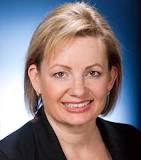
Residents of remote and rural Australia have poorer oral health than residents of the major cities, according to a
report by the Royal Flying Doctor Service. The report,
Filling the Gap, says that while about one quarter (23%) of adults living in major cities have untreated tooth decay, prevalence increases as distance from a capital city rises, with more than one third (37%) of remote area residents living with untreated decay. Untreated tooth decay for Indigenous Australians is even higher, with more than half (57%) of Indigenous Australians having one or more teeth affected by decay.
The report states: “The disparity in oral health outcomes between city and country is directly related to disparities in dental care availability and access. On average, more than six-in-10 (63%) major city adults visited a dentist in a year, compared to little more than four-in-10 (45%) in remote areas …
“This disparity in oral health outcomes between city and country is also influenced by a greater prevalence of oral health risk factors and barriers to access and availability in country Australia. Risk factors and barriers relating to diet, tobacco use, harmful alcohol use, stress, dental hygiene, health literacy, access to fluoridated water, dental product cost, and fruit and vegetable access are more acute in country areas than in major cities.
* A specially fitted van operated by the RFDS Victoria, in association with Dental Health Services Victoria and ADAVB, provides basic oral care to disadvantaged members of communities in selected rural areas around the State."
 An independent co-educational North Fitzroy primary school - Deutsche Schule - is a winner in the ADA “No Mouthguard No Play” Mouthguard Policy Competition.
An independent co-educational North Fitzroy primary school - Deutsche Schule - is a winner in the ADA “No Mouthguard No Play” Mouthguard Policy Competition.







